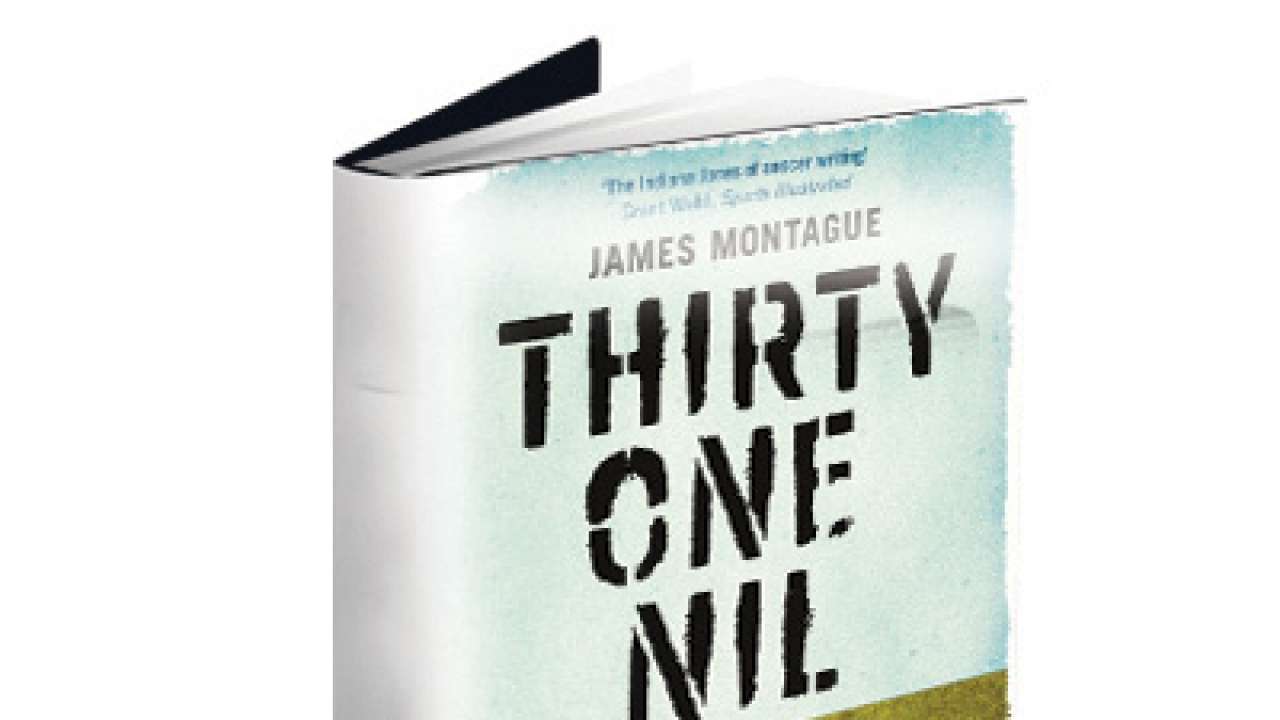
Book: Thirty-One Nil
Author: James Montague
Publisher: Bloomsbury
Pages: 330
Price: Rs 499
The month-long carnival of the world's most popular sport may have just ended in Brazil, but the fight for a place in Russia 2018 will begin in a few weeks. There is enough reason for such an early start to the World Cup qualifiers. Consider the logistics: at 209, there are more members of FIFA, football's global governing body, than there are member nations in the United Nations. Most of them will have to play numerous matches in order to qualify for one of the 31 open slots in the next World Cup (the only other slot is reserved for the host nation).
Only a few people would perhaps know this gruelling road to qualification better than British journalist James Montague. With his keen eye for outlying characters and a dry nose for absurd humour, Montague has written about some 35 of the 203 nations that fought for a place in Brazil 2014. These are not familiar footballing powers – the Germanys, Argentinas and Brazils of the world. In Montague's lot are some of the poorest, smallest and even newest nations. They are the real underdogs of world football.
Most of them won't even feature in a school's geography syllabus. Name the country which broke away as an independent nation in 1993 after a 30-year civil war and has Asmara as its capital. Answer: Eritrea. What about Willemstad, an international hub of drugs and sex trafficking? It belongs to the Dutch territory of Curaçao. And Apia? It's the head of American Samoa, a territory which inspired the title of this book when they lost 0-31 to Australia in their first ever World Cup qualifying match in 2001.
Most have rarely tasted victory in an international outing. It would not surprise to know that football isn't the day job for many of their players, including soldiers, fishermen, journalists, church workers, lab technicians and princes. And it's not just footballing odds that are stacked against them. Some of these nations have been inhospitable for any sport in the recent past, hobbled as they have been by earthquakes (Haiti), volcanic eruptions (Montserrat), riots (Myanmar) or brutal occupation (Palestine). Others like Afghanistan and Eritrea don't let their players out of their borders for fear of defection.
Yet, their players, officials and fans dream of glory. Qualifying for the World Cup is one of the defining ambitions of their lives. Why? That's the nub Montague tries to uncover in episodic chapters spanning qualifying matches all over the world. He goes far beyond football to fathom the buoyancy of that absurd hope. Montague dwells more on the absurdities of putting together national teams from far-flung diaspora, the quiet dignity of players who have never been to the nations they are representing, and the artery-bursting zeal of driven officials and politicians.
Thirty-One Nil also manages to convey the intense recent history of some nations through their stadiums. When the Borg el Arab in Alexandria played host to an Egypt-Mozambique game, not a single spectator was allowed in the 86,000-seater stadium because of an earlier end-of-the-game bloodbath which killed 72 fans of Egypt's best football club, Al Ahly. When you know that the rugged supporters of the club were also some of the most efficient organisers at Tahrir Square, you realise why the rulers, who overturned the government brought in by the Tahrir Square revolution, were wary of them.
Montague shows that along with soaring hopes, football can reveal the deepest insecurities of some nations. Israel brings in tougher border-crossing rules for young Palestinian men when, against their loud protests, Palestine is granted full membership of FIFA in 1998. When Gibraltar gets its FIFA card, Spain threatens to pull out of all competitions fearing that recognition of the British colony would fuel separatist sentiments in Catalonia and the Basque Country. Kosovo's membership is being contested by Serbia and its ally Russia, and feared by Switzerland, who might lose their stars Xherdan Shaqiri and Valon Behrami to the team of their national origin.
Montague's book establishes why football is the world's biggest religion. So what if half the world is turned off by it?